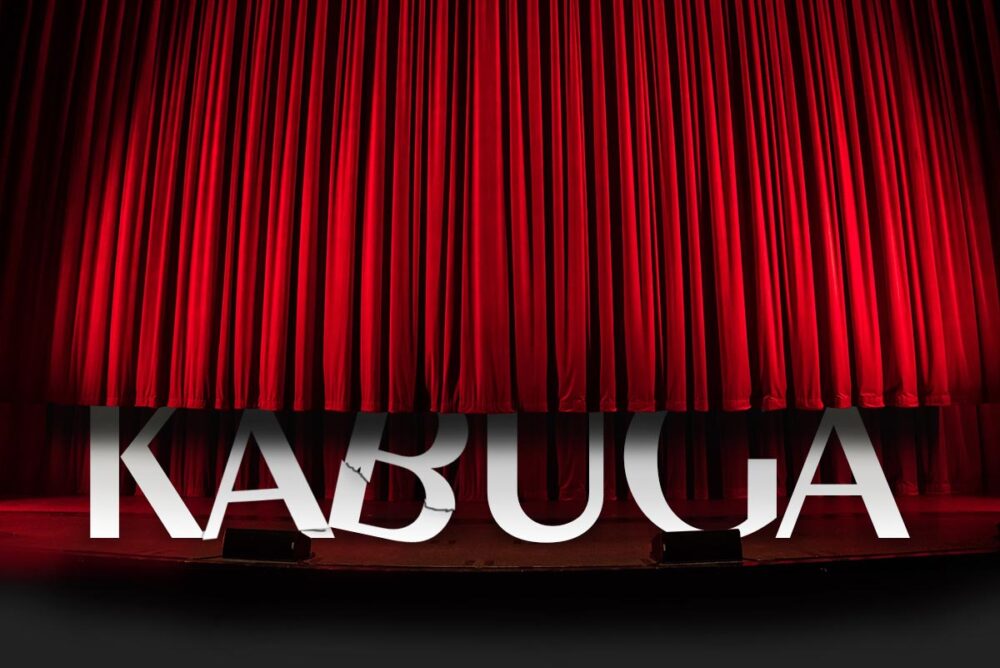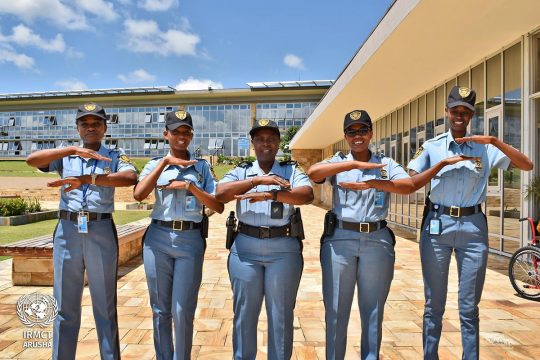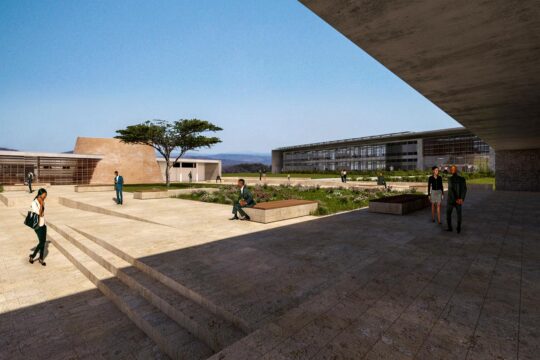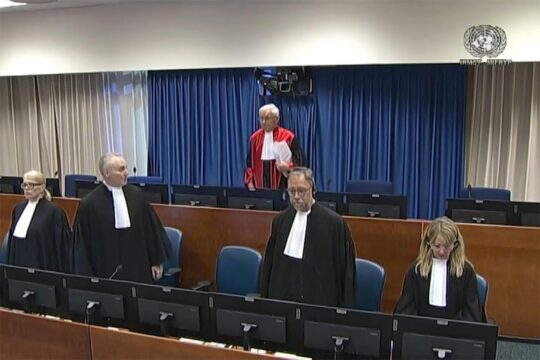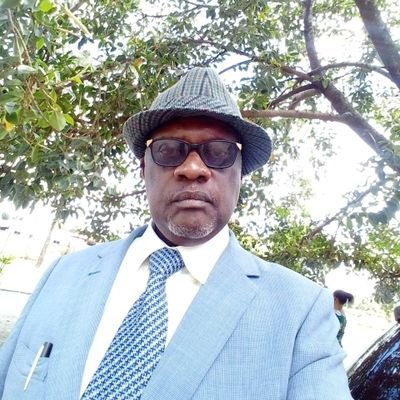This time, the appeal judges didn’t take long. On June 6, 2023, the trial chamber had concluded, by a majority vote, that the mental health of Félicien Kabuga, aged 88 or 90, rendered him unfit to take part in his trial. But it decided, again by a majority vote, to continue the case through an “alternative finding procedure that resembles a trial as closely as possible, but without the possibility of a conviction". This was unprecedented in international justice and highly controversial.
Both parties appealed the decision. The prosecutor argued that the judges had erred in finding the last major 1994 genocide suspect unfit to stand trial. The defence, on the other hand, called for this "alternative procedure" to be rejected, saying it lacked a legal basis.
On August 7, the Appeals Chamber of the UN mechanism trying Kabuga - otherwise known as the "International Residual Mechanism for Criminal Tribunals" (IRMCT) - issued a clear ruling: the trial judges had not erred in deeming Kabuga unfit to stand trial, but they had erred in coming up with an alternative procedure that did not exist. The Appeals Chamber therefore sent the case back to the lower court “with an instruction to impose an indefinite stay of proceedings and expeditiously address the issue of Kabuga’s detention on remand”.
And so the final curtain falls on this trial awaited for almost 30 years, which will therefore not take place.
Failure for the UN tribunal
Kabuga was on the run for 23 years after his indictment by the International Criminal Tribunal for Rwanda (ICTR), a court set up by the United Nations in the wake of the Rwandan genocide perpetrated between April and July 1994 against the Tutsis. Justice final caught up with him on the morning of May 16, 2020, when he was arrested in Asnières-sur-Seine, on the outskirts of Paris.
The former businessman, considered Rwanda's richest man in 1994, was charged with genocide, conspiracy to commit genocide, direct and public incitement to commit genocide, as well as persecution, extermination and murder as crimes against humanity. He was prosecuted for his responsibility in the content of incendiary broadcasts on Radio-télévision des mille collines (RTLM), and for the moral, logistical, material and financial support given to Interahamwe militia in the capital, Kigali, the prefectures of Gisenyi and Kibuye. Kabuga is accused of having made his vehicles available to the killers for their murderous operations, of having distributed machetes and other weapons to them, and of having given them money and food. His indictment was modified over time - notably with the dropping of charges linked to the massive purchase of machetes - but Kabuga remained a central player in Rwandan politics in the early ‘90s and his trial historically key to validate or call into question certain explanations of events leading up to the Tutsi genocide.
For the "Mechanism" and its prosecutor Serge Brammertz, the frustration and failure are clear. In a press release, Brammertz acknowledges that this outcome "will be distressing and disheartening" for victims. But, he tries to reassure them, "this decision may be a disappointment, but I can assure the victims and survivors that it is not the end of the justice process."
His Rwandan audience is not convinced, however. On August 11, in a statement posted on its X (formerly Twitter) account, victims' association Ibuka expressed its dismay at the decision, which it described as a failure of the Mechanism "to meet its core mandate and associated expectations, from both Tutsi genocide victims and the entire international community”.
The influential organization also says that the Mechanism “has deliberately ignored that victims and survivors of the crimes that Kabuga is charged for have waited long to see justice being delivered and Kabuga’s fitness to stand trial is a mere excuse and living example of a double standard for not mentioning an open discrimination at detriment of both victims and survivors”.
Focus on Kabuga’s release
In its decision, the Appeals Chamber said it was "cognizant that victims and survivors of the crimes that Kabuga is charged with have waited long to see justice delivered, and that the inability to complete the trial proceedings in this case, due to Kabuga’s lack of fitness to stand trial, must be disappointing. However, justice can be delivered only by holding trials that are fair and conducted with full respect for the rights of the accused set out in the Statute”.
For the judges in The Hague, "this is a fundamental feature of the legal framework of the Mechanism and its predecessor tribunals, which is vital to the credibility and endurance of their legacy".
The defence, of course, has every reason to be satisfied. Their client's health and fitness for trial have been at the heart of Kabuga's lawyers' strategy since the start of proceedings. “The Defence of Félicen Kabuga expresses its satisfaction that the Appeals Chamber put an end to a process that no longer had any meaning (…), upheld the highest standards of justice, maintained the integrity of the judicial process and preserved the legacy of the Mechanism," said lawyer Emmanuel Altit in a statement. His next objective is to secure Kabuga's release. This is much awaited, with the conditions not yet clear. The prosecutor asserts that finding a state to accept Kabuga on its territory may present obstacles, but the Appeals Chamber responds that "such a consideration may not be the basis for Kabuga’s continuous detention on remand". The trial judges are therefore invited "to expeditiously consider the appropriate terms and conditions for his release".
The trial’s long agony
Félicien Kabuga's state of health proved fatal to the costly ambitions of UN justice. The Mechanism built a new courtroom for Kabuga’s trial in the northern Tanzanian town of Arusha where the ICTR was established, at a cost of $8.7 million. But the accused's air travel, in the midst of the Covid-19 pandemic, was deemed too risky. At his initial appearance on November 21, 2020, the Chamber requested a fortnightly report on Kabuga's state of health. And from early 2021, at the request of the defence, a succession of medical experts assessed Kabuga's fitness to stand trial and be transferred to Arusha. A year later, one of the experts, Professor Gillian Mezey, already considered Kabuga unfit to stand trial. In May 2022, a total of five experts, including psychiatrists and neurologists, presented their reports. But the Trial Chamber concluded that the trial could go ahead in The Hague. It simply ordered that Félicien Kabuga's fitness to stand trial be reassessed every 180 days by a panel of independent experts appointed by the Registry.
The trial opened on September 29, 2022. By the end of December, the Chamber had held 29 days of hearings -- two hours a day, three days a week. Nineteen prosecution witnesses were heard. The trial was due to resume on January 17, 2023, but was postponed several times due to Kabuga’s declining health and the death of one of the judges. It resumed on February 14, at an even slower pace: two days a week for a maximum of 90 minutes a day, with Kabuga participating via videoconference from the detention centre. Four additional witnesses were heard. On March 6, the experts' report came in: "Kabuga's physical health and mental capacity have deteriorated considerably since [the] previous assessments, he now meets the clinical criteria for dementia, and he cannot participate meaningfully in his trial, whatever the trial arrangements or accommodations". The hearing of witnesses was suspended. It will not resume.
With the August 7 decision, Kabuga’s trial came to an end after 23 witnesses had been heard. The desire to expedite proceedings and the hyper-protection of witnesses, marked by the extreme use of closed-door sessions, served to cast a veil of opacity over this trial, which had been heralded with great fanfare. Of the 23 witnesses, only three testified openly: Monique Mujawamariya, a Rwandan-Canadian human rights activist; former Kigali Court of First Instance prosecutor François-Xavier Nsanzuwera; and French journalist Jean-François Dupaquier, presented by the prosecution as an expert witness on the media in Rwanda. The in-camera proceedings made the trial so obscure it made Rwandans say that "the old man" was still in hiding.
A negligible contribution to history
There is nothing new in the testimony of these witnesses, which were largely characterized by hearsay, inconsistencies and contradictions. Kabuga was accused on the stand of having provided financial and logistical support to the Interahamwe militia, youth wing of the then presidential party MRND (Mouvement républicain national pour le développement) and spearhead of the Rwandan genocide. According to some witnesses, his residence in the Muhima district of Kigali, donated to the MRND, was used for firearms training, while others, ex-members of the notorious militia, claimed that training took place elsewhere, for example at Kabuga's home in the Kimironko district. None of them, however, were eyewitnesses to what was going on inside the former businessman's residence.
Kabuga is also said to have offered his trucks to transport weapons to Gisenyi and Kibuye for the massacre of Tutsis. Some witnesses, such as "KAB066" said they had heard he bought these weapons himself.
Another issue addressed was RTLM, where the accused was president of the Comité d'initiative, the radio station's executive body. Witness "KAB005", a former Ministry of Information official, was in charge of monitoring and recording RTLM broadcasts. According to this witness, Kabuga often took the floor at meetings convened by the ministry to chastise the radio's managers about its broadcasts. Kabuga, he said, argued that the radio station had the right to tell the “whole truth”. Nsanzuwera, for his part, said that at one of the meetings he attended, Kabuga, "like a patriarch", did not take part in the debates and that it was RTLM's director Ferdinand Nahimana who doggedly defended the radio station.
So much for this background, which sheds no more light on what was already well known.
Final legacies
The other highlight of this aborted trial was the conflict between the accused and his lead lawyer Altit. Kabuga and his family tried to replace the French lawyer on several occasions, without success. The court seemed to fall back into the debates on freedom of choice of counsel that had plagued the ICTR in its early years, with the judges ruling that "the right to legal assistance funded by the Mechanism does not confer the right to counsel of one's own choosing" and "although some weight is given to the accused's preference, this may be disregarded if it is in the interests of justice". This position appears conservative compared to the one that finally prevailed nearly 25 years ago.
There remains the question of Kabuga's funds and assets seized or frozen as part of the investigation. Contacted by Justice Info, the Mechanism's registry would not give any further details on the results of this investigation or on the future of the former agribusiness and real estate tycoon’s frozen accounts and assets in Rwanda.
The UN Mechanism will have no more trials on the merits: Kabuga was the last. This raises the question of the fate of its hundreds of employees. The prosecutor's office alone is said to have seen its workforce increase by 10% after Kabuga's arrest. The only remaining tasks of this judicial institution are now to monitor the sometimes theoretical issues of witness protection in several countries, (rare) assistance to national jurisdictions, support for the enforcement of sentences for those convicted and imprisoned in various African and European states, possible applications for review or early release by ICTR (or ICTY) prisoners, and finally the management of the digital and physical archives of the former UN tribunals for Rwanda and the former Yugoslavia. The Mechanism may also need to manage its latest major faux pas: the dispatch, in December 2021, of eight acquitted or released persons to Niger, where they are still stranded at a time of heightened political tension following a coup d'état.
With the official end of the Kabuga trial, the Arusha Mechanism looks more than ever like a "white elephant". And the work of international justice on the genocide in Rwanda, which began in 1995, is coming to a damp squib end.


